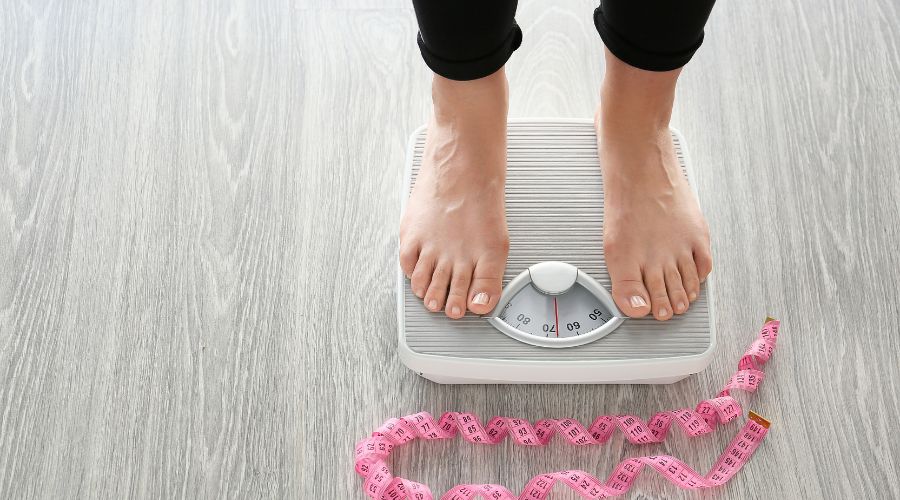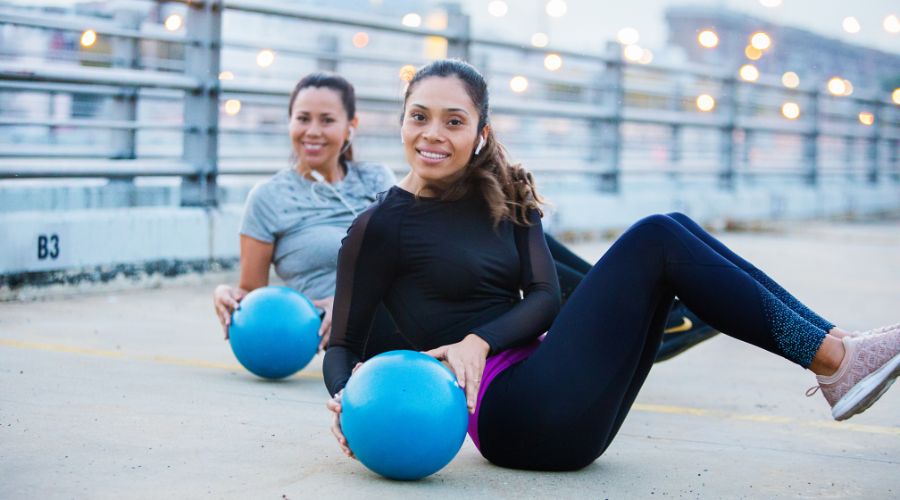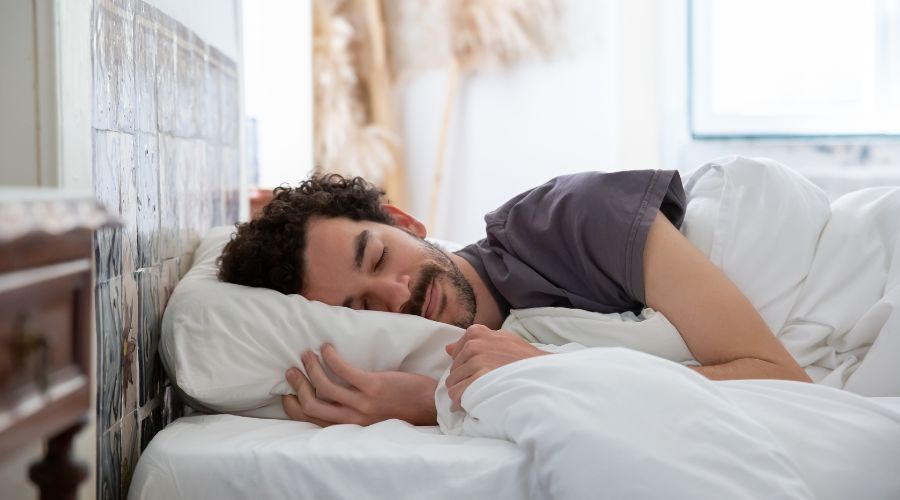Maintaining a healthy lifestyle has become more important than ever in the fast-paced world of today. No one can ignore the benefits that exercise brings to an individual’s life. Regular exercise stands out among the other elements of a healthy lifestyle as a crucial element for obtaining the highest level of physical fitness and overall well-being. Regular physical activity has numerous advantages that affect not just one’s physical health but also their mental and emotional well-being. Regular exercise adds years to your life.
The importance of regular exercise is explained in this blog, along with its implications for physical health, mental health, and general quality of life. Let us check out some of the benefits that you will enjoy with regular exercise.
1. Boosts Physical Health

The first and foremost thing is that exercise has a vast impact on health. With a wide range of advantages that go far beyond just the external appearance, regular exercise is a powerful motivation for improving physical health. The secret to improving several facets of physical well-being is to consistently engage in physical activity. Its significant effects on cardiovascular health are among its most prominent benefits. Exercises like walking, jogging, swimming, or cycling give the heart the chance to develop and stretch its muscles, which enhances the cardiovascular system as a whole. The efficient delivery of oxygen and vital nutrients throughout the body is subsequently made possible by increased blood circulation. The risk of heart-related problems, such as heart attacks and strokes, is considerably reduced by this process, enabling one to enjoy a healthier life.
2. Helps In Weight Management

Exercise and weight management go hand in hand, and that is evident. Exercise burns calories, resulting in a calorie deficit that promotes weight loss. Additionally, workouts that enhance muscle mass result in an elevated resting metabolic rate, which causes continuous calorie expenditure even when at rest. In order to reach and maintain a healthy weight, this combination of calorie expenditure and muscle building is a powerful tool.
Regular exercise is important because it can alter your metabolism in ways that last longer than just burning calories right away. Bodyweight workouts, resistance training, and other muscle-building activities are essential for changing your body’s composition. Your muscles microtear and heal themselves while you perform these actions. Your body burns more calories as a result of this energy-intensive repair process, both during exercise and during the recovery time after exercise.
3. Helps In Weight Management

In addition to improving physical health, exercise has the capacity to enlighten the emotional environment. Exercise and improved mood are related to each other, which is a powerful illustration of how closely the body and the mind are connected. Endorphins, frequently referred to as the body’s natural “feel-good” chemicals, are released when a person exercises regularly. These endorphins act as a calming orchestra, easing anxiety and despair while also reducing stress. The advantages go beyond the instant improvement in mood. The meditative rhythm produced by the repetitive cadence of exercise allows you to temporarily tune out the noise of everyday life and focus on the present moment. Away from the incessant mental talk that frequently fuels increased tension and emotional disquiet, this focused participation promotes a sense of serenity and relaxation.
4. Exercise Encourages Better Sleep

The association between exercise and sleep is intriguing and transformative, underscoring the significant positive effects that physical activity may have on general well-being. By affecting different physiological variables, regular exercise prepares the body for a more comfortable sleep.
Exercise is essential for managing the circadian rhythm, the body’s internal clock that controls the sleep-wake cycle. When we engage in outdoor activities like running or brisk walking, we expose ourselves to natural light and help synchronise our circadian rhythm, which encourages a more wholesome sleep cycle. Additionally, the progressive increase in body temperature that occurs during activity, followed by a cooling down time, mimics the natural drop in temperature that happens in the evening, which tells individuals’ bodies to prepare for sleep.
5. Exercise Enhances Energy Level

The role of regular exercise can also be seen in an increased level of energy. Physical activity sets off a series of physiological reactions that synergistically increase your vitality. It helps increase the muscle strength and endurance power of individuals. The heart responds to the movement by pumping oxygen-rich blood, giving muscles and organs a boost in energy. The circulatory system improves with regular exercise, effectively delivering oxygen and nutrients to muscles and organs, boosting stamina, and lowering sensations of exhaustion. Exercise’s unique ability to boost energy levels leads to a positive feedback loop that encourages us to approach each day with fresh vigour and stamina.
Exercising also encourages the release of endorphins, those wonderful “feel-good” chemicals that reduce stress and exhaustion and give you a renewed sense of vigour. The body’s endurance increases over time as it adjusts to regular exercise, giving it more energy and stamina to complete everyday activities.
6. Exercise Reduces Pain

Regular exercise has the extraordinary power to reduce pain and discomfort, making it a lifesaver for people suffering from a variety of physical aches and pains. Exercise functions as a powerful analgesic, reducing pain perceptions and fostering a sense of well-being by releasing endorphins, which are naturally occurring molecules that combat pain. This benefit is most noticeable in situations characterised by chronic pain, when regular physical activity enhances joint flexibility, joint function, and muscular strength, relieving stress on the affected areas.
People who regularly exercise not only give themselves the capacity to overcome pain but also create a healthier and more fulfilling existence free from the restrictions that discomfort might impose. In fact, for a long time, rest and inactivity were recommended as the primary methods of treating chronic pain. However, recent studies have shown a paradigm-shifting perspective, showing that exercise is a highly effective treatment for reducing chronic pain.
7. Promotes A Better Sexual Life

Regular exercise has the ability to improve your sexual health and intimacy, paving the way for more meaningful and gratifying sex life. Beyond just being physically healthy, engaging in regular physical activity has a great impact on your sexual health, which is a crucial element of your overall health. Regular physical activity can lead to a more fulfilled and satisfied sexual life. Exercise causes your body to release endorphins, those feel-good hormones that improve your mood and heighten your sensation of pleasure. Furthermore, exercise enhances blood circulation, which is essential for sexual function. Improved blood flow results in more effective oxygen and nutrition delivery to the body’s numerous organs, including those that are involved in sexual arousal.
In addition, regular exercise gives you more energy and endurance, enabling you to approach intimacy with fresh vigour. Whether it’s a brisk stroll, a swim, or a fitness programme, making time for exercise may result in a more lively and satisfying sexual life, bringing a deeper level of connection and happiness to your general well-being.
What Are The Ways To Incorporate Exercise Into A Regular Routine?

There are many easy and efficient ways to make exercise a seamless part of your everyday life; it doesn’t have to be a difficult chore to include it in your routine. Here are some useful tips to help you incorporate exercise into your daily routine:
1. Begin Small: Start small and set manageable objectives. Each day, start off with only a few minutes of exercise, and as you get more accustomed to it, gradually increase the time and intensity.
2. Pick Activities You Enjoy: Opt for activities you actually enjoy, whether they be dancing, walking, cycling, or participating in sports. Sticking with anything gets simpler when you like it.
3. Establish Regular Workout Schedules: Treat your workouts as essential appointments. Schedule particular times in your everyday life. Set aside specified periods throughout the day for exercise and follow through on them.
4. Split It Up: If finding a dedicated block of time is difficult, split your workout into smaller chunks and spread them out throughout the day. Even brief activity spurts might pile up.
5. Take Advantage of Breaks: Perform a few short push-ups, squats, or stretches during commercial breaks or while watching TV. Over time, these little workouts might have an impact.
6. Walk More: Increase your daily step count by choosing to walk rather than take the stairs, drive short distances, or walk your dog. Aim for 10,000 or more daily steps.
7. Involve Friends or Family: Exercising with friends or family makes it more fun. Take a fitness class, go hiking with friends, or engage in a family activity.
8. Set objectives: Set fitness objectives or challenges for yourself, such as covering a certain amount of ground when jogging or performing a certain quantity of push-ups. By pursuing these goals, you may maintain your motivation.
9. Use technology: To measure your exercise and progress, there are several fitness apps or wearable gadgets. These tools can help you stay on track and offer insights.
10. Be Flexible: Since life may be unpredictable, be willing to change your fitness regimen as necessary. Don’t let missing a session demotivate you; simply get back on track the next day.
11. Make Daily Tasks More Active: Make housework more active. Cleaning, gardening, or vacuuming may all increase your heart rate and burn calories.
12. Perfer Commutating: Whenever possible, commute actively by walking, bicycling, or getting off the bus or train a stop early before continuing on foot.
13. Do Home Workouts: Working out doesn’t require a gym. Use bodyweight exercises to build a basic plan, try smart gym at home or follow online training tutorials.
Final Words
Everyday exercise is the key to a healthier, happier existence in a world awash in activity. It’s about making little, regular efforts that stack up over time, not about running marathons or lifting heavy weights. Exercise has various benefits, such as elevating your mood and boosting your energy, reducing stress, and promoting better sleep. Keep in mind that you don’t require expensive equipment or lots of spare time. A little walk, a quick dance in the living room, or some stretches will do wonders. So put on your trainers and make the transition to a more active way of life. Your physical and mental well-being will improve as a result of your efforts.
To become a healthier, happier version of yourself, start small, remain dedicated, and let regular exercise be your dependable travel partner. Making this simple yet significant decision will be appreciated by your future self. Here’s to living a life that is active, healthy, and full of positive energy!


